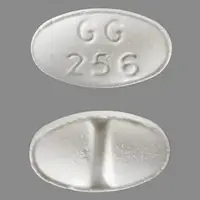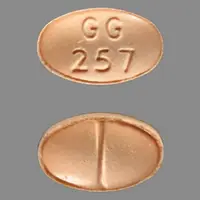Generic name: alprazolam
Drug class: Benzodiazepines
Availability: Prescription only
Pregnancy & Lactation: Risk data available
What is Alprazolam?
Alprazolam is a benzodiazepine (ben-zoe-dye-AZE-eh-peen). It is thought that it works by enhancing the activity of certain neurotransmitters in the brain.
Alprazolam is used to treat anxiety disorders, panic disorders, and anxiety caused by depression.
It is dangerous to purchase alprazolam on the Internet or outside the United States. The sale and distribution of medicines outside the U.S. does not comply with safe-use regulations of the Food and Drug Administration (FDA). These medications may contain dangerous ingredients, or may not be distributed by a licensed pharmacy.
Warnings
MISUSE OF ALPRAZOLAM CAN CAUSE ADDICTION, OVERDOSE, OR DEATH and should be used only by the person for whom it was prescribed. Keep the medication in a place where others cannot get to it.
Alprazolam can slow or stop your breathing and fatal side effects can occur if you take this medicine with alcohol, opioid medicine, or other drugs that cause drowsiness or slow your breathing.
Do not stop using this medicine without asking your doctor. You may have life-threatening withdrawal symptoms if you stop using the medicine suddenly after long-term use. Some withdrawal symptoms may last up to 12 months or longer.
Get medical help right away if you stop using alprazolam and have symptoms such as: unusual muscle movements, being more active or talkative, sudden and severe changes in mood or behavior, confusion, hallucinations, seizures, or thoughts about suicide.
You should not use alprazolam if you have narrow-angle glaucoma, if you also take itraconazole or ketoconazole, or if you are allergic to alprazolam or similar medicines (Valium, Ativan, Tranxene, and others).
Do not use alprazolam if you are pregnant. This medicine can cause birth defects or life-threatening withdrawal symptoms in a newborn.
How should I take Alprazolam
Take alprazolam exactly as prescribed by your doctor. Follow the directions on your prescription label and read all medication guides or instruction sheets. Never use alprazolam in larger amounts, or for longer than prescribed. Tell your doctor if you feel an increased urge to use more of alprazolam.
Never share this medicine with another person, especially someone with a history of drug abuse or addiction. MISUSE CAN CAUSE ADDICTION, OVERDOSE, OR DEATH. Keep the medication in a place where others cannot get to it. Selling or giving away this medicine is against the law.
Measure liquid medicine with the supplied measuring device (not a kitchen spoon).
Swallow the extended-release tablet whole and do not crush, chew, or break it.
Allow the orally disintegrating tablet to dissolve in your mouth without chewing.
Call your doctor if your symptoms do not improve, or if they get worse.
If you use this medicine long-term, you may need frequent medical tests.
Do not stop using alprazolam without asking your doctor. You may have life-threatening withdrawal symptoms if you stop using the medicine suddenly after long-term use.
Store at room temperature away from moisture, heat, and light. Keep your medicine in a place where no one can use it improperly.
Throw away any alprazolam liquid not used within 90 days.
Dosing information
Usual Adult Dose for Anxiety:
Immediate-release tablets/orally disintegrating tablets (ODT): 0.25 to 0.5 mg orally administered 3 times a day
-Maximum dose: 4 mg/day
Usual Adult Dose for Panic Disorder:
Immediate-release tablets/ODTs: 0.5 mg orally administered 3 times a day
-Maximum dose: 10 mg/day
Extended-release tablets:
-Initial dose: 0.5 to 1 mg orally once a day
-Maintenance dose: 3 to 6 mg orally per day, preferably in the morning
-Maximum dose: 10 mg/day
Comments:
-The lowest possible effective dose should be administered and the need for continued treatment reassessed frequently.
-Dosage should be reduced gradually when discontinuing therapy or when decreasing the daily dosage.
-The daily dosage may be decreased by no more than 0.5 mg every 3 days; however, some patients may require an even slower dosage reduction.
-The dose of extended-release tablets may be increased at intervals of 3 to 4 days in increments of no more than 1 mg per day.
-The times of administration should be distributed as evenly as possible throughout the waking hours.
Usual Geriatric Dose for Anxiety:
Elderly or debilitated patients:
Immediate-release tablets/ODTs: 0.25 mg orally administered 2 or 3 times a day.
Usual Geriatric Dose for Panic Disorder:
Elderly or debilitated patients:
Immediate-release tablets/ODTs:
-Initial dose: 0.25 mg orally administered 2 or 3 times a day
Extended-release tablets:
-Initial dose: 0.5 mg orally once a day
Comments:
-If side effects develop, the dose may be lowered.
-The lowest possible effective dose should be administered and the need for continued treatment reassessed frequently.
-Dosage should be reduced gradually when discontinuing therapy or when decreasing the daily dosage.
Before Taking
You should not take alprazolam if:
-
you also take antifungal medicine such as itraconazole or ketoconazole; or
-
you have a history of allergic reaction to any benzodiazepine (alprazolam, lorazepam, diazepam, Ativan, Valium, Versed, Klonopin, and others).
To make sure alprazolam is safe for you, tell your doctor if you have ever had:
-
breathing problems;
-
drug or alcohol addiction;
-
depression, mood problems, or suicidal thoughts or behavior; or
-
kidney or liver disease.
Tell your doctor if you are pregnant or plan to become pregnant. If you use alprazolam during pregnancy, your baby could be born with life-threatening withdrawal symptoms, and may need medical treatment for several weeks.
You should not breastfeed.
If you do breastfeed, tell your doctor if you notice drowsiness or feeding problems in the baby.
Not approved for use by anyone younger than 18 years old.
What happens if I miss a dose?
Take the medicine as soon as you can, but skip the missed dose if it is almost time for your next dose. Do not take two doses at one time.
What happens if I overdose?
Seek emergency medical attention or call the Poison Help line at 1-800-222-1222. An overdose of alprazolam can be fatal if you take it with alcohol, opioid medicine, or other drugs that cause drowsiness or slow your breathing.
Overdose symptoms may include severe drowsiness, confusion, slurred speech, muscle weakness, loss of balance or coordination, feeling light-headed, slow heartbeats, weak or shallow breathing, fainting, or coma.
What should I know about storage and disposal of this medication?
Keep this medication in the container it came in, tightly closed, and out of reach of children. Store it at room temperature and away from excess heat and moisture (not in the bathroom). Discard any cotton in the bottle containing orally disintegrating tablets and close the bottle tightly.
It is important to keep all medication out of sight and reach of children as many containers (such as weekly pill minders and those for eye drops, creams, patches, and inhalers) are not child-resistant and young children can open them easily. To protect young children from poisoning, always lock safety caps and immediately place the medication in a safe location – one that is up and away and out of their sight and reach. http://www.upandaway.org
Unneeded medications should be disposed of in special ways to ensure that pets, children, and other people cannot consume them. However, you should not flush this medication down the toilet. Instead, the best way to dispose of your medication is through a medicine take-back program. Talk to your pharmacist or contact your local garbage/recycling department to learn about take-back programs in your community. See the FDA's Safe Disposal of Medicines website (http://goo.gl/c4Rm4p) for more information if you do not have access to a take-back program.
What special dietary instructions should I follow?
Talk to your doctor about drinking grapefruit juice while taking this medicine.
What should I avoid while using Alprazolam?
Avoid drinking alcohol. Dangerous side effects or death could occur.
Avoid driving or hazardous activity until you know how alprazolam will affect you. Dizziness or drowsiness can cause falls, accidents, or severe injuries.
Alprazolam side effects
Get emergency medical help if you have signs of an allergic reaction to alprazolam: hives; difficult breathing; swelling of your face, lips, tongue, or throat.
Alprazolam can slow or stop your breathing, especially if you have recently used an opioid medication or alcohol. A person caring for you should seek emergency medical attention if you have slow breathing with long pauses, blue colored lips, or if you are hard to wake up.
Call your doctor at once if you have:
-
weak or shallow breathing;
-
a light-headed feeling, like you might pass out;
-
a seizure;
-
hallucinations, risk-taking behavior;
-
increased energy, decreased need for sleep;
-
racing thoughts, being agitated or talkative;
-
double vision; or
-
jaundice (yellowing of the skin or eyes).
Drowsiness or dizziness may last longer in older adults. Use caution to avoid falling or accidental injury.
Common alprazolam side effects may include:
-
drowsiness; or
-
feeling light-headed.
After you stop using alprazolam, get medical help right away if you have symptoms such as: unusual muscle movements, being more active or talkative, sudden and severe changes in mood or behavior, confusion, hallucinations, seizures, suicidal thoughts or actions.
Some withdrawal symptoms may last up to 12 months or longer after stopping this medicine suddenly. Tell your doctor if you have ongoing anxiety, depression, problems with memory or thinking, trouble sleeping, ringing in your ears, a burning or prickly feeling, or a crawling sensation under your skin.
This is not a complete list of side effects and others may occur. Call your doctor for medical advice about side effects. You may report side effects to FDA at 1-800-FDA-1088.
See more: Alprazolam Side EffectsWhat other drugs will affect Alprazolam?
Sometimes it is not safe to use certain medicines at the same time. Some drugs can affect your blood levels of other drugs you use, which may increase side effects or make the medicines less effective.
Taking alprazolam with other drugs that make you sleepy or slow your breathing can cause dangerous side effects or death. Ask your doctor before using opioid medication, a sleeping pill, a muscle relaxer, or medicine for anxiety or seizures.
Many drugs can interact with alprazolam, and some drugs should not be used at the same time. Tell your doctor about all other medicines you use. This includes prescription and over-the-counter medicines, vitamins, and herbal products. Not all possible interactions are listed here.
What other information should I know?
Keep all appointments with your doctor.
Do not let anyone else take your medication. Alprazolam is a controlled substance. Prescriptions may be refilled only a limited number of times; ask your pharmacist if you have any questions.
It is important for you to keep a written list of all of the prescription and nonprescription (over-the-counter) medicines you are taking, as well as any products such as vitamins, minerals, or other dietary supplements. You should bring this list with you each time you visit a doctor or if you are admitted to a hospital. It is also important information to carry with you in case of emergencies.







